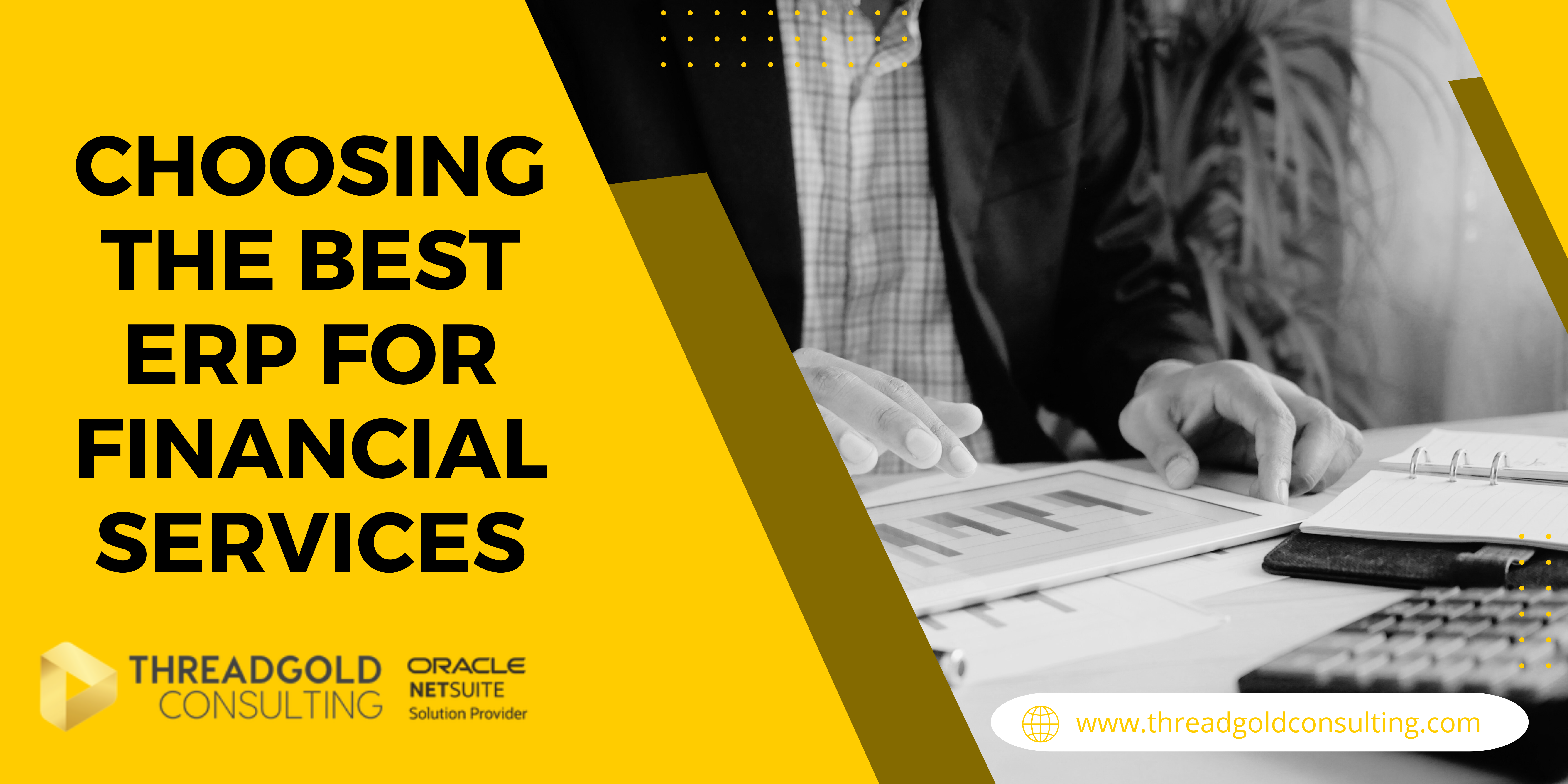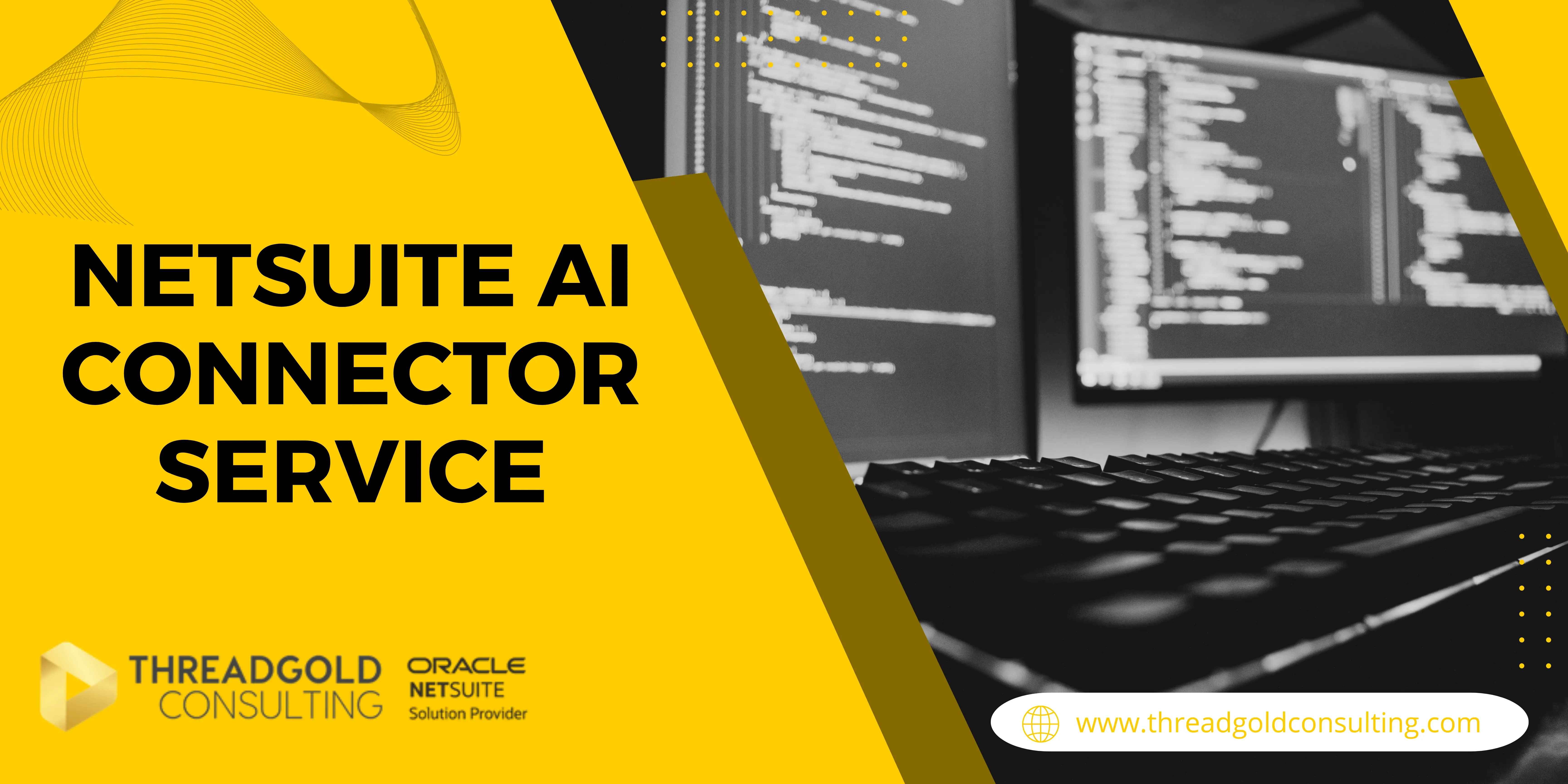The Controller's Guide to Choosing the Best ERP for Financial Services
As a controller or CFO in the financial services industry, you understand the importance of selecting a reliable Enterprise Resource Planning (ERP) system. Your ERP is the backbone of your accounting and finance operations, powering everything from reporting to regulatory compliance.
With increasing regulatory pressure, market volatility, and the need for multi-entity financial consolidation, choosing the best ERP for your financial services business isn’t optional, it’s critical.
In this guide, we highlight the 8 best ERP systems for financial services, explain who they’re best suited for, and give you a step-by-step process to evaluate vendors.
1. Oracle NetSuite
Overview
NetSuite is a cloud-based ERP platform built for fast-growing and global organizations. With modules tailored for financial services, including asset management, financial planning, and regulatory compliance, it’s an ideal solution for firms requiring scalability and deep financial visibility. Its unified architecture supports real-time reporting and multi-entity consolidation, making it perfect for CFOs managing multiple subsidiaries or international operations.
Key Features
- Multi-entity financial consolidation with NetSuite OneWorld
- Real-time dashboards for finance KPIs
- Built-in compliance support for regulations like SOX and GDPR
- Native CRM and professional services automation (PSA)
- Highly customizable and scalable cloud platform
Pricing
Starts around $999/month base license + $99/user/month. Pricing varies based on modules and customization. Implementation services typically range from $25,000 to $100,000 depending on scope.
Who It’s Most Suited To
Mid-sized to large financial services firms with multi-entity operations, international presence, or complex reporting requirements. Ideal for PE firms, wealth managers, or corporate finance groups needing real-time insights and scalability.
2. Microsoft Dynamics 365 Finance
Overview
Microsoft Dynamics 365 Finance offers robust financial management tools integrated with the Microsoft ecosystem. It’s known for its deep reporting capabilities, AI-driven insights, and ability to integrate easily with other Microsoft services like Power BI and Azure.
Key Features
- Budgeting and forecasting tools
- Multi-currency and multi-entity support
- Real-time cash flow monitoring
- Compliance and audit trails
- Integration with Microsoft 365 and Power BI
Pricing
Starts at $180/user/month. Additional modules and services priced separately.
Who It’s Most Suited To
Larger firms with existing Microsoft infrastructure and complex reporting needs. Great for organizations that want strong analytics capabilities and native integrations with Microsoft tools.
3. Sage Intacct
Overview
Sage Intacct is a popular cloud-based ERP known for its ease of use, strong financial controls, and deep functionality in core accounting. It is an AICPA-endorsed solution and particularly favored by accounting teams in financial services.
Key Features
- Automated revenue recognition
- Audit-ready compliance tracking
- Dashboards for real-time visibility
- Multi-entity consolidation and rollups
- Strong general ledger and AP/AR management
Pricing
Starts at around $15,000/year for small teams. Custom pricing based on company size and modules selected.
Who It’s Most Suited To
Small to mid-sized financial services firms or investment managers looking for strong core financials and audit readiness without heavy IT overhead.
4. Oracle Cloud ERP
Overview
Oracle Cloud ERP is a powerful enterprise-grade platform offering comprehensive financial, procurement, and project management tools. It excels in global finance management, automation, and high-volume transaction processing.
Key Features
- AI-driven automation for AP, AR, and GL
- Risk management and audit controls
- Advanced tax compliance capabilities
- Powerful financial planning & analysis (FP&A)
- Global operations support with built-in localization
Pricing
Pricing is custom and tends to be on the higher end. Typically suited for larger enterprises with substantial implementation budgets.
Who It’s Most Suited To
Large multinational financial institutions, banks, or insurers with complex needs across geographies and compliance domains.
5. Workday Financial Management
Overview
Workday is known for its unified approach to financials, HR, and planning. For financial services firms focused on people management alongside financial insights, Workday offers a strong, integrated suite.
Key Features
- Unified finance and HR data model
- Real-time analytics and planning
- Strong internal controls
- Continuous auditing tools
- Built-in compliance frameworks
Pricing
Custom pricing. Typically targets larger enterprises with more than 500 employees.
Who It’s Most Suited To
Financial services organizations that need close alignment between finance and HR — such as fintechs, large advisory firms, or fast-scaling consultancies.
6. Deltek Costpoint
Overview
Deltek Costpoint is widely used in the government contracting space but offers powerful project accounting and compliance tools for financial services firms with project-based billing or regulatory reporting obligations.
Key Features
- Project-based accounting
- Government compliance tracking (e.g., DCAA)
- Advanced billing and time tracking
- Resource planning tools
- Strong audit trails
Pricing
Starts around $200/user/month. Additional setup and licensing fees may apply.
Who It’s Most Suited To
Boutique financial services firms handling project-based billing, or those serving government clients with compliance-heavy requirements.
7. Acumatica
Overview
Acumatica is a flexible, cloud-based ERP designed for growing businesses. It is known for open APIs, user-based pricing, and ease of customization, making it a good fit for firms with unique operational models.
Key Features
- Real-time reporting and dashboards
- Customizable workflows
- Open APIs for integrations
- Strong financial suite
- Modular licensing
Pricing
User-based pricing. Typically starts at $12,000/year for core financials.
Who It’s Most Suited To
Mid-market financial services firms with custom workflows or in-house development capabilities who want an adaptable ERP.
8. Infor CloudSuite Financials
Overview
Infor CloudSuite is a modern financial ERP with industry-specific capabilities and AI automation. It offers a strong alternative to legacy ERPs and excels in automating high-volume financial operations.
Key Features
- Advanced general ledger capabilities
- Real-time data lakes for analytics
- Modern UI and workflow automation
- Compliance and risk management tools
- Multi-currency and localization support
Pricing
Custom pricing. Generally mid-to-high range depending on modules and deployment.
Who It’s Most Suited To
Financial firms looking to replace outdated systems and streamline finance with AI and automation, especially in fast-changing regulatory environments.
How to Choose the Right ERP for Financial Services
1. Assess Your Requirements
Document your organization’s pain points, regulatory obligations, reporting needs, and planned growth (e.g., international expansion or M&A).
2. Identify Must-Have Features
Make a list of non-negotiables like multi-entity support, regulatory compliance modules, or cloud hosting.
3. Shortlist Vendors Based on Fit
Use the criteria above to narrow your selection. Focus on those who serve similar-sized firms or industries.
4. Request Demos and Run Use Cases
Invite vendors to walk through your specific workflows (e.g., consolidation, audit prep, or cross-entity transactions).
5. Review Pricing and Total Cost of Ownership
Get detailed breakdowns of license, implementation, and ongoing costs. Be wary of hidden fees or limited user licensing.
6. Evaluate Support and Implementation Partners
Choose a vendor with certified partners who understand financial services and can support you post go-live.
7. Make a Data-Driven Decision
Use a scoring system that compares vendors against weighted requirements (e.g., functionality, cost, support).
Frequently Asked Questions (FAQ)
Q: What is the best ERP system for financial services firms?
A: NetSuite is considered one of the best ERP systems for financial services due to its strong multi-entity capabilities, regulatory compliance features, and real-time financial reporting.
Q: How much does ERP software cost for financial services companies?
A: ERP pricing varies widely. Cloud-based solutions like NetSuite or Sage Intacct may start at $1,000 to $2,000/month, while enterprise options like Oracle or Workday can cost significantly more, especially with implementation.
Q: What features should I look for in an ERP for financial services?
A: Key features include multi-entity accounting, compliance tracking, real-time reporting, automated consolidation, and integration capabilities with banking and CRM systems.
Q: Is cloud ERP better than on-premise for financial services?
A: Cloud ERP is generally preferred today due to scalability, automatic updates, and lower infrastructure costs. It's also easier to maintain compliance with regulatory requirements.
Q: How long does it take to implement an ERP in financial services?
A: Implementation timelines can range from 3 to 12 months depending on the size of the firm, number of entities, and complexity of operations.
Ready to Explore NetSuite?
Our team at Threadgold Consulting specializes in helping financial services firms evaluate and implement NetSuite.
Want to see how NetSuite can work for your firm? Get in touch below for your free trial!




